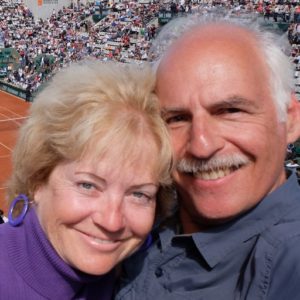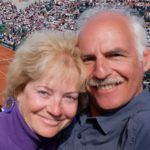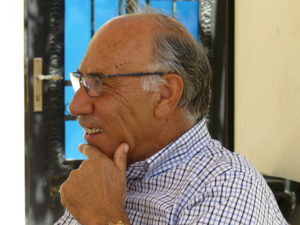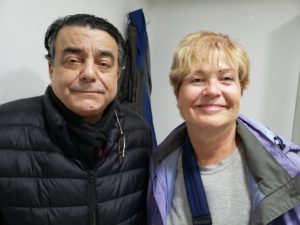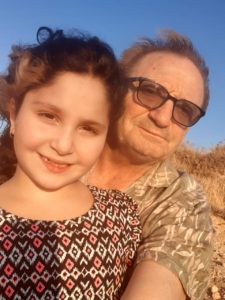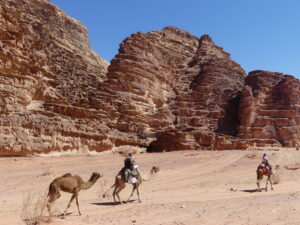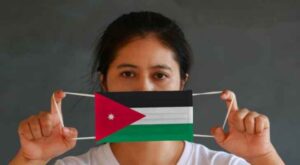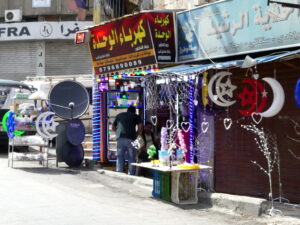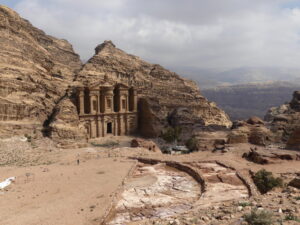Though muted this year, Jordan’s spring celebration of Ramadan demonstrated fully the admirable qualities of its people: charitable, family-oriented, pious, learned and full of good humor.
Our extended stay let us see all these qualities in everyday behavior as well. We began immediately with medical problems, Nancy’s broken arm and Barry’s stomach virus. After touring the country, we remained for three extra months due to the lockdowns and restrictions forced by covid-19. But fortunately these problems opened up very special experiences: the gracious pleasures of Jordanian culture, the depth of care for others, and the unfailing hospitality even to strangers like us.
In the process, we found a family there, through such close “relatives” as these…
Jameel and his son Mohammad, our apartment hosts. Their care began with the usual arrangements before arriving. Then came our first, surprised sighting of Jameel. As we arrived after midnight in Amman by plane, greeting us was a stranger with a welcoming smile and a sign with our names on it.
He soon became our mainstay when we needed to find a good hospital and the best doctor for Nancy’s broken arm. Then as he drove us around and, along with his sisters, ensured all was well. When we were still recuperating, he brought us out to relax at his Jordan Valley farm and supplied us with a cornucopia of the freshest vegetables.
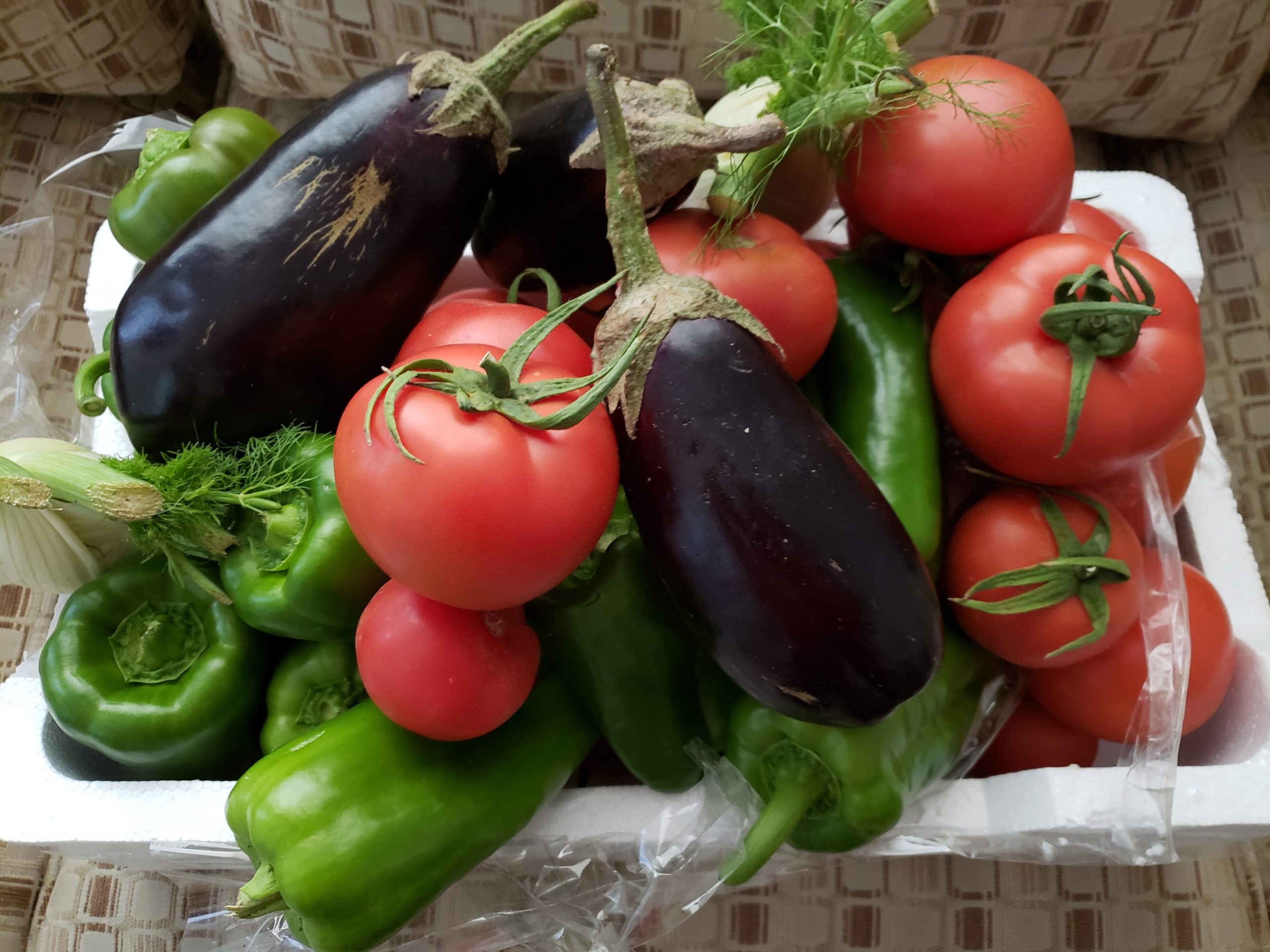
With lively conversation ranging from farming to religion to politics, he escorted us to Bethany and Jerash so we could begin to enjoy the famed historical pleasures of his country. A month later, as covid-19 closed the country, his son continued to make us comfortable in his apartment and help us with visa extensions. We only hope that sometime we can host them half as well as they supported us.
Dr. Ghazal, the renowned orthopedic surgeon who repaired Nancy’s arm, went far beyond technical expertise. Arriving at the hospital even as we did, he took charge of Nancy’s care and our emotions. He scheduled surgery for 9 at night that same day to relieve her pain (and Barry’s anxiety). He arranged for the locals’ pricing and never charged for any follow-up visit or advice, including her Zoom-ed online checkups. We found that we shared a number of interests, which occupied nearly as much time during visits to his clinic as the arm checkup. If not for covid-19, we would likely have shared even more time together.
His counterpart in remedying Barry’s stomach virus, Dr. Mahmoud, rivaled Ghazal in hands-on care, personal interest and capability. He visited Barry often during his two day stay in hospital. As a result of our unusual joint experience, we understood first hand why Jordan is one of the top five centers for medical tourism in the world, and the best among Arab countries.
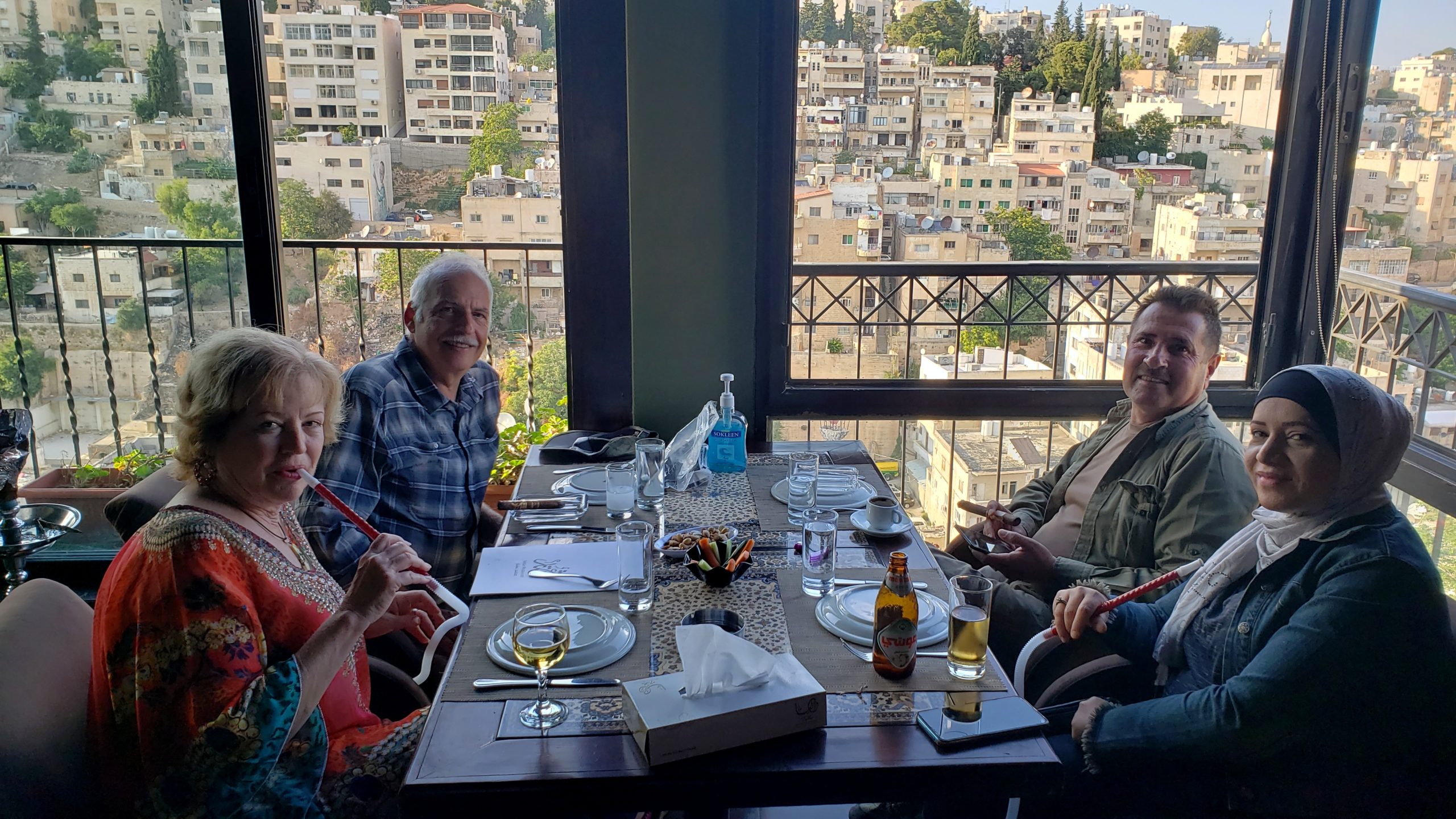
Hosam, Hoda, Muhanned. We have written before of Hosam’s friendship, which began with his care for Nancy at his sweets shop in the moments after she tumbled. Soon he was accompanying us on shopping expeditions, directing us to useful resources and more. A superb cook, along with his gracious wife Hoda, he hosted us several times after restrictions loosened from covid-19. They both remained unfailing friends with whom we would always share coffees, juices, cigars and sheeshahs. His brother Muhanned was also a convivial neighbor, frequently ushering us into the shop for coffee and talk, introducing us to the neighborhood, and making sure we wanted for nothing.
Another neighbor, Jamal, seemed to have more relatives in the US than we did, as well as useful contacts across Jordan.
Warm and ebullient, he offered so much help with travel and transport options within Jordan, recommendations, contacts to smooth the visa process, and advice in general…we wished at times we were more needy. He still sends us jokes remotely.
These were the mainstays of the Amman family we already miss. Thankfully they ensured that we, their newfound relatives, stayed well and well-supplied.
We will also not forget our extended family, the friendly owners of those many small shops nearby on which we survived during our enforced stay – from the fresh produce markets to the tiny sellers of spices, grains and nuts of mind-boggling diversity, from the miniature “supermarkets” we frequented to the always fragrant fresh bakeries nearby.
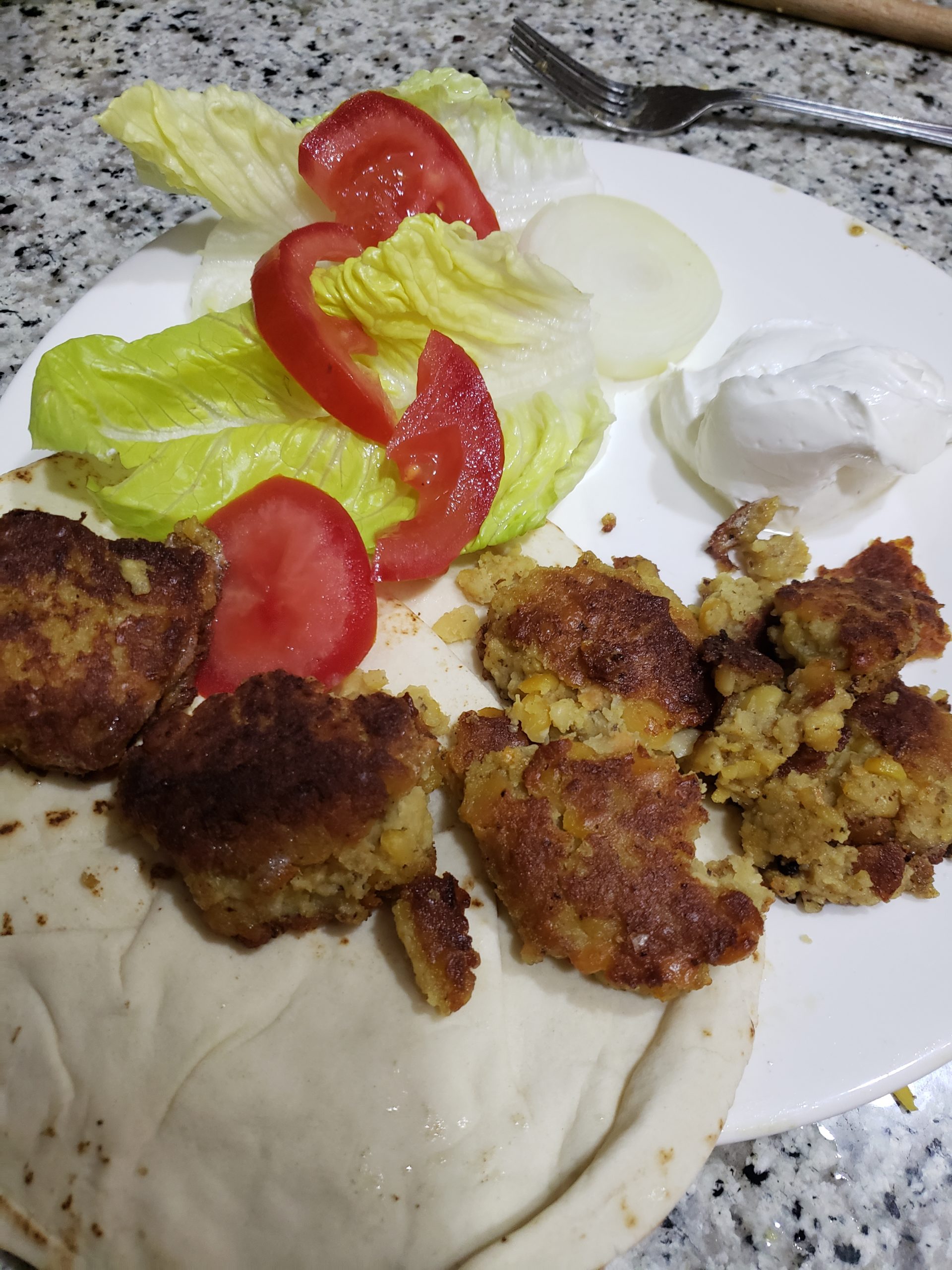
Bread here truly seems the staff of life: nearly everyone you pass is laden with bags of flatbreads. It was one of the three necessities pegged by the government for home delivery during the early days of covid lockdown. And the memory of those smells recall other cherished whiffs of Jordanian dishes like homemade hummus, falafel, galayet (with its fragrant tomato, garlic, and olive oil base), labaneh and other fresh milk products, fragrant teas, Arabic coffee, fine Jordan Valley wine, plus the ever-tempting delicate desserts made with cheese or honey (like the knafeh we made with Hosam or Hoda’s ollaz). Two weeks after leaving, with many such goodies packed in our bags as well as lotions from the Dead Sea, we are happily still savoring the aromas of Jordan.
We had read that the people of Jordan accommodate two core cultures, the tented Bedouin nomads and the cultivating stone-housed Fellahin. On the one hand, egalitarian in disposition, where borders and social organization are loose; and, on the other, more hierarchical and structured. We witnessed the Fellahin side as Jordan’s ministers applied a strong central hand and tough regulations to stifle the spread of covid-19, under the leadership of a still powerful monarchy. As mainly nomads ourselves, we also appreciated the country’s embrace of strangers, as best shown by the housing of millions of Palestinian and Syrian refugees sheltered here. And, more personally, in how we were helped to feel right at home.
(To enlarge any picture above, click on it. Also, for more pictures from Portugal, CLICK HERE to view the slideshow at the end of the itinerary page.)
